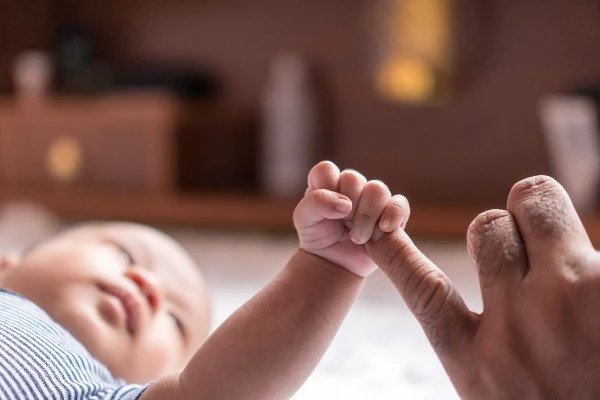
How to bond with your infant?
When our children are born, it is as if tiny strangers have entered our lives. We do not always know how to respond to their cries, what they require, or if they require anything; did they urinate, are they hungry, or do they need physical contact? Communicating with our infant will be more beneficial than we anticipate and is much simpler than we believe.
Here are three things that will help you bond with your infant more and better:
1. Carry your infant
Carrying your child affords you and your child a wonderful opportunity for bonding. In addition, babies who are carried tend to scream less, and for us, it will allow us to return to an activity more similar to what we did before our children were born, which provides us with worth and comfort in our roles as women and mothers. You can accomplish tasks while simultaneously caring for your bonded infant. It also encourages the practice of nursing.

2. Watch your infant’s movements
The infant can communicate by gestures if we can discriminate between them. Initially, we need to determine his gestures and what they represent. Observing him will reveal that he is urinating when he blinks, and when he produces that amusing grimace, he defecates.
Thus, we must observe him frequently and as much as possible. As a result of babywearing, you will be in an advantageous position to do so. Soon, he will have grown and changed, so take pleasure in observing him now.
Understanding his motions can also aid us in times of newborn stress by promoting a proper response and enhancing our ability to accompany him.

3. Do skin-to-skin
Carrying and skin-to-skin contact are not identical, although they are similar. Ensure that you and your baby enjoy uninterrupted time together when you are at home. Leave your kid in a diaper, and remove your shirt or at least expose as much of your chest as possible to facilitate skin-to-skin contact.
You will discover that the sensation is so fantastic for both of you that you will want to experience it repeatedly. Sniff your infant. It would help if you had no further stimulation beyond good touch and human kindness.
If the room temperature is below 22 degrees Fahrenheit, cover her feet or both of yours with a blanket, sheet, or fabric, staying warm by touching them.

And finally, something we don’t often do but is much more vital than we realize is communicate with your baby by speaking to him. Tell him what you will do and will not do together, what you will do before carrying it out. Inform your infant of everything that occurs, will, or has occurred. This is particularly crucial if you were separated at birth.
Your infant does not need to comprehend; rather, he needs to feel accompanied, to know that you are there and that you tell him everything; with time, you will notice that he fully comprehends you and feels accompanied. This can soothe you and assist you in externalizing your anxieties, knowing that he already knows, even though you will not tell him.






Leave a Comment